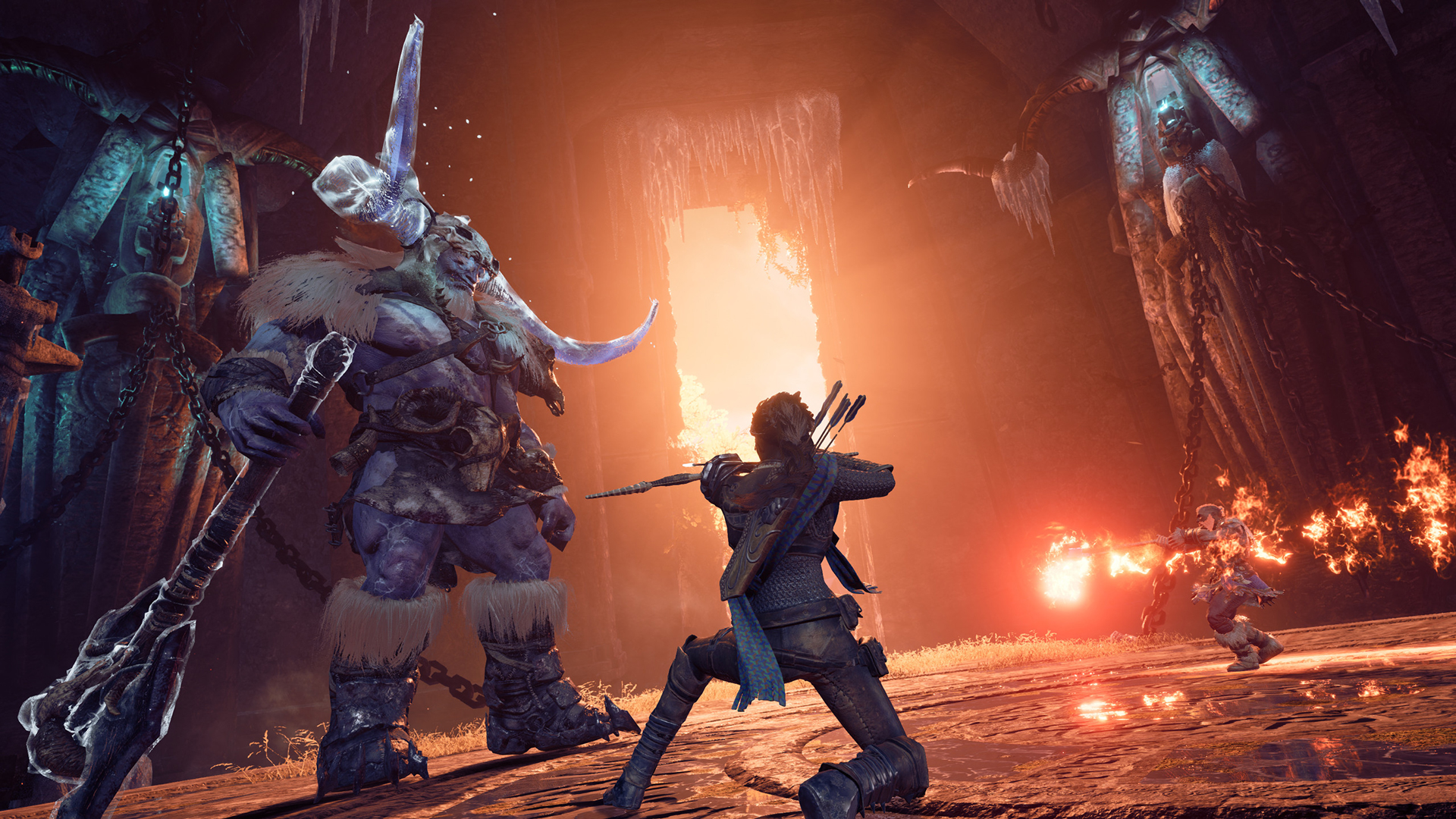
To understand why Dungeons & Dragons: Dark Alliance is a frustrating take on the legendary tabletop role-playing franchise, you need to know what it's like to be really up against it in Dungeons & Dragons. When your character is wading through problems of their own making, responding to ever-evolving situations, and just trying to cling onto a fast-paced and evolving situation. It's reactivity, essentially, and it's something that in the few hours I spent with Dark Alliance, I've found in short supply.
Now reactivity might seem like a fluffy term when it comes to a game, because everything is reactive in a way, so let me explain. I'm talking about how your actions can have unintended consequences. For instance, there was the time in a tabletop session where I used a fireball spell in a location that was particularly flammable, turning what should have been a fairly routine dungeon crawl into a manic race against time as I got a very clear lesson in what it meant to play with fire. Fans of Divinity: Original Sin will be familiar with this style of reactivity, where actions have logical consequences. But in Dark Alliance, that's missing from the stages I've played so far.
Dragging on

Combat in Dark Alliance isn't really interested in that direction. Sure, there are ideas that hint towards it, like exploding barrels that can be detonated or poison you can trick enemies to walk through, but at its core, it's mainly about pummelling. Just hit an enemy enough times until their hit points are down to 0, with the occasional parry to build up your stamina so you can carry on swinging your weapon around. In a way, this is true to a different sense of Dungeons and Dragons combat, the type where your party is throwing dice at the wall and hoping a number will stick eventually. As you can probably tell from my tone, I'm less fond of that one.
As you can imagine for a game released in the Year of our Lord 2021, Dungeons & Dragons: Dark Alliance tries to rustle up some variety in combat through the form of loot, with a vast array of armor and weapons, all with their own numbers and stats that promise to make killing enemies just that touch quicker. Whether you want to blame Dungeons & Dragons for introducing so many concepts that games have been pinching for years, or Destiny for providing a template on how to make loot marketable, Dark Alliance's only reason for having this system is because it's the franchise that spawned it, but it at least provides some control over the character you play as.
Lore and order

It's not just the combat that feels misplaced, so too does the game's focus on four characters – Drizzt, Catti-brie, Bruenor Battlehammer, and Wulfgar – who all come from The Legend of Drizzt novel series. Instead of creating your own character, you're embodying ones from the franchise's extended world and that takes away the agency of moulding a personality to unleash in Faerun. It makes sense from a logistical point of view but does feel at odds with what I've personally loved about playing Dungeons & Dragons over the past 18 months.
Now, I'm not going to pretend I'm the game's intended audience. Then again, I'm not quite sure who is. As someone who has turned to the game with a group of friends to give us a way of keeping in touch during the pandemic, the things I reveal in are the ability of crafting your own story, pushing against our gamemaster's well-laid plans, and trying to turn everything into a bit. The universe of Faerun and it's many storied inhabitants doesn't interest me in the slightest, and I'm happy to concede that it might for more gnarled veterans.
But will they be happy to bludgeon their way through a campaign where Lord of the Rings-esque grandeur and spectacle replaces the character-driven stories they're used to crafting? Will they look at the Short Rest checkpoints and nod in appreciation that a term from the RPG has been used or be bewildered at the reminder that this is such a grand departure from the game they love. Not every adaptation has to be a 1:1 recreation of the source material, but it should offer the spark that made the original so beloved and that's something Dark Alliance doesn't even get close to.
Weekly digests, tales from the communities you love, and more
Want to play Dungeons and Dragons but don't know how? Then you'll want to read our guide on how to start playing D&D.

Ben Tyrer is a freelance games journalist with over ten years experience of writing about games. After graduating from Bournemouth University with a degree in multimedia journalism he's worked for Official PlayStation Magazine as a staff writer and games editor, as well as GamesRadar+ (hey, that's this website!) as a news editor. He's also contributed to Official Xbox Magazine, Edge, PC Gamer, GamesMaster, PC Games N, and more. His game of the year - no matter the year - is Rocket League.


